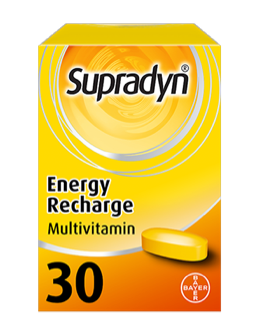SMART NUTRITION
Vitamins and minerals as concentration and memory boosters
The challenges and demands of modern jobs are very high. The job market is full of well educated, ambitious and clever graduates looking to impress their potential employer. Even if you already have your dream job, you have to work hard every day to constantly provide excellent results. Otherwise, there is a long queue of jobseekers waiting for their opportunity. That’s why it is so important that your focus and concentration has to be of the highest level. It is essential that you get enough vitamins and minerals in your body, as they are critical for optimal mental and physical performance. Moreover, if you have a deficiency of some of the vitamins or minerals, it might mean that you are not using your potential to the full capacity. The deficiency can negatively affect brain function, energy levels, and mood.
Your brain is an amazing machine, a complex structure with many different functions. The more it is researched, the more surprising things are being discovered. A recent study shows that the memory capacity of the brain is 10 times higher than previously thought.1 According to the researchers the brain can potentially store about one petabyte, about the same amount needed to store the entire Internet! This proves that your brain’s capabilities are vast. Read on if you want to find out which vitamins and minerals can help the brain reach its full potential.
They are a key factor in reaching the full potential of the brain. They support you vigorously, positively, and purposefully on a daily basis, helping to promote long-term brain health throughout your life. B vitamins are well known for improving energy, focus and alertness. If your body is provided with enough B vitamins, you will have more energy and better cognitive capabilities.2
Regular intake of B vitamins is used to improve mental function. Vitamin B6 helps to reduce fatigue and maintain proper physical and mental well-being. Vitamin B1 and B12 contributes to a normal functioning of the nervous system.
Homocysteine, which is found in a blood, plays an important role in metabolism. However, if the levels of homocysteine are too high, it becomes toxic and causes damage to the fine blood vessels of the brain. Studies show that high levels of homocysteine play a role in brain damage, impaired cognitive performance and memory.2 Vitamins B12, B6 and B9 help metabolize homocysteine by reducing its concentration in the bloodstream and help prevent long-term damage to brain tissue.
Group B vitamins can be found in foods like: legumes, fish, meat, eggs, dairy products, and green leafy vegetables. If you are not eating enough of these foods you might be at risk of vitamin B deficiency. Multivitamin like Supradyn is the great source of vitamin B helping your brain work to its full capacity.
This vitamin is involved in production of certain neurotransmitters. One of these neurotransmitters controls attention and response actions.3 Therefore, vitamin C will help your brain to perform. Detoxifying properties of vitamin C can help fight against pollutants and oxidative stress.4
Vitamin C can be found in foods like: red and green pepper, kiwi, broccoli, and strawberry.
This vitamin helps in preventing and combating common cold and flu. It’s shown to be critical for healthy nerve function. You can meet your daily vitamin D requirements by spending 20 – 30 minutes in direct sunlight. This might be problematic in winter so multivitamin supplements like Supradyn can help to satisfy your body needs. Supradyn difese contains vitamins C and D and also mineral zinc which can help you stay healthy and full of strength throughout the whole winter season.
Food sources of vitamin D: fatty fish (salmon, tuna, mackerel) and smaller amounts in beef liver and cheese.
This vitamin protects the cell from oxidative stress. Vitamin E functions as an antioxidant and the brain is particularly susceptible to free radicals. There is some evidence that vitamin E might benefit the mind and memory in older people.5
Food sources of vitamin E: sunflower seeds, nuts, spinach, and kiwi.
This mineral is especially abundant in the brain. It is essential for cognitive functioning.
Food sources of zinc: oysters, crab, meat, pumpkin seeds, cashews, and chickpeas.
Vitamins and minerals play a vital role in keeping your mind fresh. There are many life occurrences that jeopardize your mental freshness, from environmental influences to stressful lifestyles. These cause significant energy loss in the body that needs to be replaced. Vitamins and minerals help with proper functioning of the brain and nervous system. Multivitamin Supradyn contains a mixture of 13 vitamins and 9 minerals which can help improve concentration and memory. Supradyn can be taken daily, it tastes great and works instantly to enhance your alertness and concentration levels.6
1 Bartol, T. M., Bromer, C., Kinney, J., Chirillo, M. A., Bourne, J. N., Harris, K. M., & Sejnowski, T. J. (2015). Nanoconnectomic upper bound on the variability of synaptic plasticity. ELife, 4. doi: 10.7554/elife.10778
2 Kennedy, D. (2016). B Vitamins and the Brain: Mechanisms, Dose and Efficacy—A Review. Nutrients, 8(2), 68. doi: 10.3390/nu8020068
3 Harrison, F. E., & May, J. M. (2009). Vitamin C function in the brain: vital role of the ascorbate transporter SVCT2. Free Radical Biology and Medicine, 46(6), 719–730. doi: 10.1016/j.freeradbiomed.2008.12.018
4 Carr, A. C., & Maggini, S. (2017). Vitamin C and immune function. Nutrients, 9(11): 1211. Doi:10.3390/nu9111211
5 Fata, G., Weber, P., & Mohajeri, M. (2014). Effects of Vitamin E on Cognitive Performance during Ageing and in Alzheimer’s Disease. Nutrients, 6(12), 5453–5472. doi: 10.3390/nu6125453
6 Kennedy DO, Stevenson EJ, Jackson PA, et al. Multivitamins and minerals modulate whole-body energy metabolism and cerebral blood-flow during cognitive task performance: A double-blind, randomised, placebo-controlled trial. Nutr Metab (Lond). 2016;13:11.












